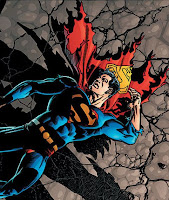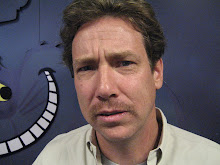It’s said travel improves one. But all my plane tickets to Charlotte, North Carolina have brought me is despair.
My morning flight out of LAX is, I learn in a baggage line stretching a mile long, cancelled. My direct hop is now a sojourn of connecting flights and long layovers. It isn’t clear my suitcases will find me at the end of my odyssey. Finally arriving hours after I was supposed to, will the rental car I reserved still be waiting? I’d done all I could to avoid it but would now be negotiating sight-unseen mountain roads under the cover of night.
“Call your assistant,” my wife commands. “Get us out of this mess.”
“I am an assistant. Technically, I guess that would be me,” I say.
“You get up there, then, and get them to put us on another airline.”
That sounds as though it might involve conflict.
“But the nice man in my voicemail message assures me these flights of theirs are the only ones available.”
Lucy rolls her eyes. “Of course they’re going to say that. But they have to find you seats on another carrier if you want. It’s the law.”
I glance at the harried ticketing/baggage agent. Dark coronas of sweat radiate from beneath his arms. He has the wild, wide eyes of a terrified mare.
“Oh, for God’s sake,” Lucy huffs. She attempts to push past me toward the counter.
“I’ve got this,” I say. I cinch up the pants in the family and stride almost confidently forward.
The counter is awash in protest. The scene calls to mind recent images from Libya or the chili dog stand at Walmart. The woman next to me is in tears. With eye makeup running down her cheeks, she looks like Alice Cooper. Maybe she is Alice Cooper.
“Look here, good fellow, this simply won’t do,” complains an Englishman.
“You fat fuck,” yells a fellow Angelino.
After many tense minutes of negotiation I return to my wife’s side.
“We’re taking their flights,” I say.
Las Vegas
The highway to hell is a thing of beauty. We head out over the ocean before dipping our wing and turning inland toward Sin City. Below, white sails bob atop an ocean of blue velvet. As we bank, a sparkling ribbon of sunlight moves across the sea’s surface and dances upon my window.
I gaze more intently and notice flecks of white beneath us. White caps. It’s actually quite turbulent. But from this heavenly vantage point, one might never know. Taking the long view, all is serene, smooth sailing.
A rim of the Grand Canyon soon fills my window. Its layers of rose-colored and purple rock stand out against vast ivory fields of snow at higher elevations. Then appears another wonder: Lake Mead. Its Hoover Dam is the likely the largest in the world.
We glimpse this first class beauty from the tail of our plane. We are in the very last row. “This is actually the safest part of the plane,” Lucy says. But I can’t hear her, the lavatory at my elbow smells so awfully. Gone, too, is my sense of taste. My eyes refuse to focus. The toilet announces itself with a fetid hello each time someone opens its door. A line forms and people stand with their rears pushing against the side of my head.
But there is no moving, no escaping my caste. The flight is sold out. “For safety reasons, please stay within your class,” an attendant reminds those of us looking to freshen up and avoid the queue. Then she pulls closed a curtain to separate the untouchables from the Brahmin.
In Vegas, even the airport is chock full of slots. Lights flash. John Williams’ thrilling score rings from a bank of Indiana Jones-themed machines. I’m not in McCarran for two minutes before the wheels come completely off the wagon.
“You know what?” I tell the Starbucks worker, “Let’s do toss a little cream cheese in with that bagel.”
She paws beneath the register.
“Non-fat, right?” I add.
She comes up squeezing a fistful of little packets and shakes her head.
I’m silent for a moment. “Let’s roll them dice!” I finally say. I’ve run entirely off the rails. “’What happens in Vegas,’ right?”
She watches me as she hands over the bag.
Somewhere Outside Charlotte, North Carolina
I’ve been ripping along the highway for an hour but have made only 30 miles of headway. Were it not for the driving rain and dark, I imagine I could still see the control tower at Charlotte, where I landed what seems like years ago.
I head one way up the road, then have to turn around and go the other. I miss altogether onramps onto other highways. Why can’t I work this navigation system? Is it me or is the device telling me to veer right or left only when I am directly on top of the spot I should turn? I select the machine’s written-directions option, but the names of freeways and exits don’t always seem to match what’s on the signs I see out my windshield.
With 100 miles of forward progress still to make and the Witching Hour within view, my mind gives way to worry. Who knows what lives in these ancient forests surrounding my tiny car, dwarfing it, threatening to swallow it whole should my headlamps fail? It occurs to me I don’t recall where Bigfoot makes his home. I plan evasive maneuvers should a stegosaurus suddenly dart across my path.
I took this trip to experience the un-experienced. But now I’d give anything for something I’ve done on a thousand occasions before. I pass a red, glowing Outback sign for the fourth time and swerve into the parking lot.
It’s after 9 p.m., too late to be ordering a steak. But I do it anyway – and demand a baked potato and salad, to boot. My Dodgers and Giants are on the television before me. It’s the home opener in Los Angeles, where the sunshine’s so warm some fans aren’t even wearing shirts.
I order dessert, as well.
 |
BILTMORE ESTATE, ASHEVILLE, NORTH CAROLINA: In this beautifully unassuming land stands the largest privately-owned home in the United States. The Gilded Age mansion features 135,000 square feet of space and boasts 250 rooms. In the foreground, the author’s wife smiles but inwardly curses her husband for his paltry earnings. Her own George Washington Vanderbilt keeps her in a cottage no larger than the quarters of the scullery maid, behind. |
Ridgecrest, North Carolina*
I’ve come all this way for a glimpse of my niece in her wedding gown. But I can’t take my eyes of these cold, tree-covered mountains. They’re sadly majestic, dressed in rust, gray and shades of brown. Spring hasn't fully come, so these hills are mostly yet threadbare and worn. I imagine I see tattered companies of Confederates making their way through the fog.
The little flecks of white falling from the sky aren’t snow. They’re petals from a variety of tree exploding into ivory bloom. All the same, they collect to form snow-like drifts along the side of the road.
A reluctant sun retreats as titanic, rain-swollen clouds crowd the horizon. The day grows dark. Trees tremble as winds roar down the sides of these crests. Much of this growth has yet to leaf. Still, the rustling of branch and limb fills the air with a thunderous rush.
Standing outside, one can see the great gusts move over the landscape. First, distant hillside brush is blown flat. Then, a street away, chairs are turned end for end. A car alarm sounds. Next, a tsunami wave of leaves engulfs the body. At last comes the wind. It sends the feet to staggering.
* My destination is actually not a remote, unincorporated area outside Asheville, North Carolina, I learn from the man at the hotel registration desk. It’s a fully realized, stand-alone city and a perfectly lovely place to make one’s home. He’ll thank me and the rest of my fancy Hollywood friends to get that straight -- if keeping straight is something we boys can even manage.
Asheville, North Carolina
A healthy Southern breakfast includes a ladle of gravy poured atop one’s biscuits. “’That’s what she said,” I tell my wife. She sighs and continues scanning her menu.
We breakfast in the same café for each of the three days we’re in town. Just as unchanging is the tableau. To the right is a table of the groomsmen we’ll see at the rehearsal dinner and wedding. There’s my niece to the left, with her husband-to-be. The rest of the family sits variously about the place. We fill the joint. And we'll do it again tomorrow.
We have come from all corners of the country to sit here each morning and listen to the waiter tells us stories about his friend, the groom. He’s a warm God-fearing kid, we’re told. But then, all these young men are. The next day, after the bachelor party, the table of groomsmen looks haggard. It’s been a rough night. We learn later it’s only because they’ve stayed up praying.
Los Angeles
SuperShuttle must’ve made sense on paper. Its creators probably drew up their business plan, leaned back, and said to each other, “We’ve really got something here.” It’s only in the real-world touching down late at night and being taken home in a grimy, suffocating box packed wall to wall with bodies and bags that the thing's exposed as utter madness.
To begin with, one’s pickup time is not the hour he or she begins heading homeward. It’s not even close. There’s still the stopping at every terminal to wait for others to be considered. Los Angeles International’s a very big place. Then there’s the dropping off at locations all over the Southland before you finally get your shot to leap from your seat.
At last I reach the house. I’m immensely thankful to be in one piece. The ancient arthritic cat has not died. The house has not been broken into. I'm part of a wonderful family. Somewhere young people are good.
I make myself a cup of tea and realize that's worth all the trouble in the world.










